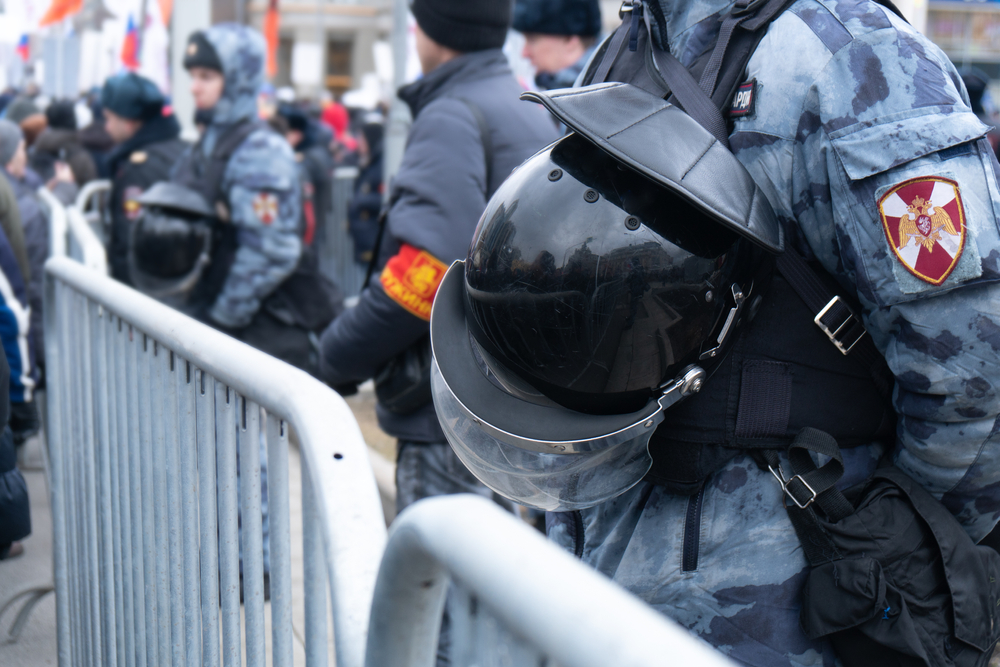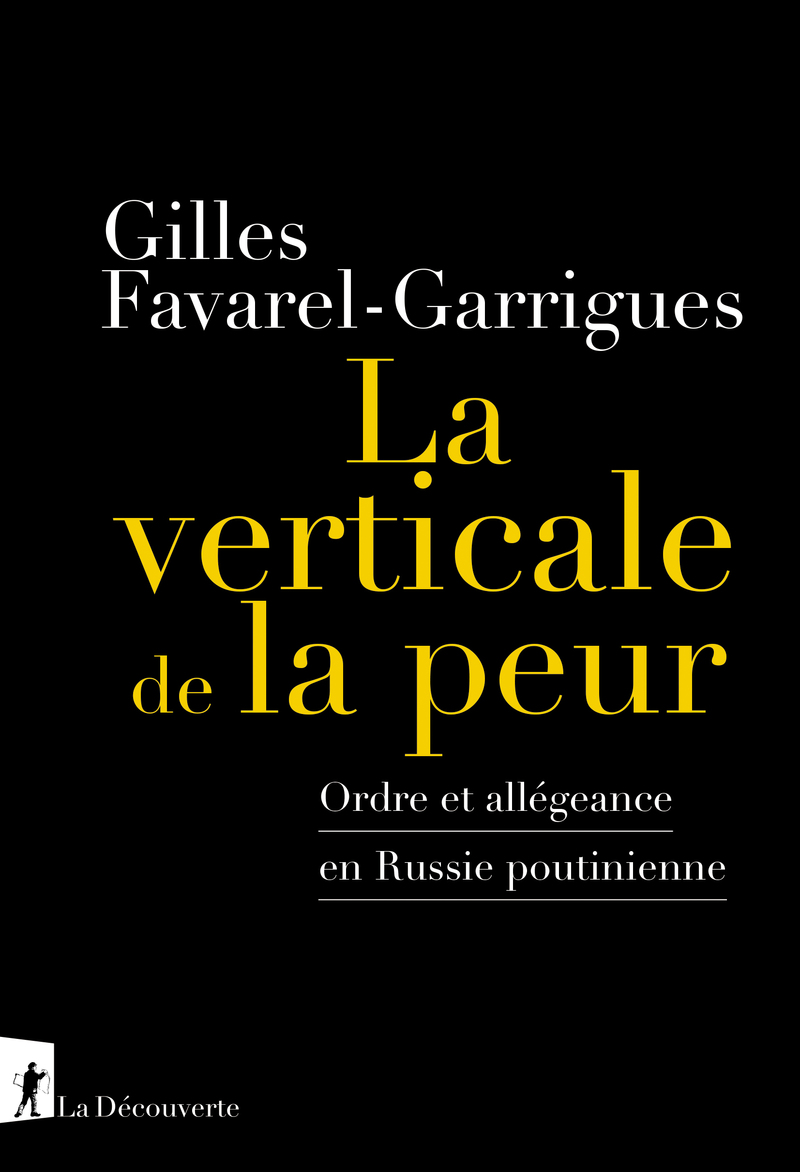Dictatorship of Law and a Power Vertical under Putin. Interview with Gilles Favarel-Garrigues

Gilles Favarel-Garrigues, Senior researcher at CERI/CNRS, has recently published La verticale de la peur. Ordre et allégeance en Russie poutinienne (The Verticality of Fear. Order and allegiance in Putin's Russia) with La Découverte. In his book based on twenty years of research, Gilles Favarel-Garrigues explores the political and social roots of Putinism, and how fear has become a pillar of the Russian president’s geopolitics. The book offers original keys to understanding how such a destructive power endures and, perhaps, how it extends far beyond the walls of the Kremlin. The following is an interview with the author.
How would you describe the current Russian regime? According to you, what is its nature?
There is currently a lot of discussion about the nature of the Russian regime. Everyone agrees that it is an authoritarian, undemocratic regime, but the debate has recently shifted to whether it is appropriate to describe it as fascist. Personally, I try to distance myself from this labelling debate, partly because in the current context of war, the term “fascist” is used by the protagonists themselves to disqualify their adversary, and partly because this term does not allow us to grasp the political order under Putin over time. I have chosen to try and show how power is exercised in practice in Russia, with which mechanisms, which players, and which coercive practices. In particular, I describe the engineering of intimidation that has developed over the last twenty years, with its share of blackmailers and media heralds.
You reject the idea that force and authoritarianism are the only way for the Russian president to stay in power, and you refer to the “dictatorship of law”. Can you tell us about this concept, which Putin put forward as soon as he came to power in the early 2000s and on which his legitimacy is partly based?
The “dictatorship of law” is an expression that Vladimir Putin himself used when he came to power in 2000. Initially, it referred to a means of exercising authority over regional leaders who were tempted to monopolise power at the local level: indeed, in the 1990s many of them tended to consider the territory they administered as their fiefdom. At the start of his reign, the new president intended to reaffirm his centralised political domination over the entire Russian territory. Over time, however, the “dictatorship of law” has become a central mode of government: it consists of using the law as a weapon to neutralise opponents and discipline the entire Russian elite. It relies on three main resources: the intelligence services, the media, and the judiciary.
You write: “The political domination at work blurs other boundaries by consolidating the role of interfaces. Power is exercised through overlap”. Could you elaborate on this idea?
I am struck by the place occupied in the implementation of political domination in Russia by actors who claim to be at the intersection of several worlds—the world of politics, the world of NGOs, the media sphere, the intelligence community, and so on. By combining several positions simultaneously, they are shaping journalistic and humanitarian practices that are loyal to the powers that be. In particular, they help to shape a civil society that is deemed “constructive” by the ruling elite, i.e. confined to technical tasks that are disconnected from any criticism of those in power. There are many within the ruling elite who have a foot in two very distinct worlds. Such overlaps show the Russian regime’s propensity for the art of chiaroscuro and pretence. For instance, a man like Prigozhin (oligarch, mercenary chief) tried two years ago to launch an NGO specialising in the defence of human rights in the face of police repression, but this NGO was intended to monitor abuses in Europe and the United States only...
You separate corruption from the fight against it. Can you tell us why?
 Because the Russian case requires it! What we call corruption is not a deviance in such a context, but a privilege granted temporarily. Being appointed to a position from which a person can profit illicitly is a favour that they owe to someone and which requires them to respect tacit rules of loyalty and obedience.
Because the Russian case requires it! What we call corruption is not a deviance in such a context, but a privilege granted temporarily. Being appointed to a position from which a person can profit illicitly is a favour that they owe to someone and which requires them to respect tacit rules of loyalty and obedience.
As implemented in Russia, the fight against corruption is not at all a fight to ensure that the elites respect probity. It is a weapon used to discipline the elites, to strike at those deemed disloyal. Its severity is indisputable: ministers or regional governors can be sentenced to many years in prison in the name of the fight against corruption, without their counterparts, who are just as corrupt but judged to be more loyal, being bothered. What is most disconcerting is that this political weapon actually owes a great deal to the international standards that Western countries sought to impose on Russia in the early 2000s, in the name of “good governance”!
You refer to a power vertical and the role of fear in maintaining it. Can you explain this concept? Are there any limits to it?
I consider the power vertical above all as a political slogan, designed to give credence to the idea that Vladimir Putin governs as an absolute monarch, at the top of a pyramid of allegiances. In practice, the application of this programme comes up against the opportunities offered by the “dictatorship of law” at the local level: many people claim to use the law as a weapon against their adversaries to settle scores. Connected to the intelligence services and the judiciary, these schemers claim a form of impunity that nevertheless exposes them to being called to order in the name of the fight against corruption. The moral entrepreneurs and other self-proclaimed vigilantes who claim to enforce order in Russia use the same weapons, but this time to gain notoriety and even profit from their declared intransigence. As such, a cause deemed legitimate, the fight against paedophilia for example, can give rise to a lucrative business.
Isn’t the system at work in Russia also partly observable elsewhere, including in contexts other than so-called authoritarian regimes?
The most obvious comparison is with so-called authoritarian regimes. The discussions I have with colleagues at CERI working on India or Turkey reveal that there are many similarities: the same propensity to co-opt a constructive “civil society”, to use law and justice for political ends while tolerating violent and unofficial forms of policing, for example. But the value of an analysis in terms of power rather than the nature of the regime lies precisely in opening a broader comparative perspective: even in so-called advanced democracies there are moments of authoritarian backsliding that an analysis of power in a country like Russia can help to decipher.
Interview by Corinne Deloy.
English version by Miriam Périer and Caitlin Gordon Walker
Photo: Russian soldiers. photo by Georgy Dzyura for Shutterstock.










